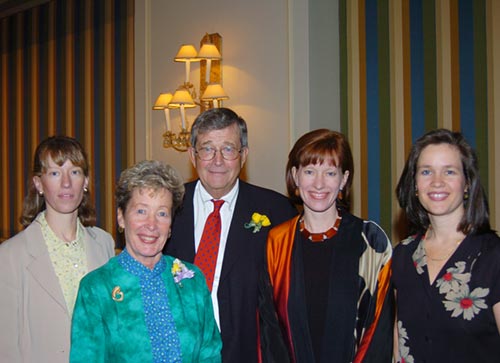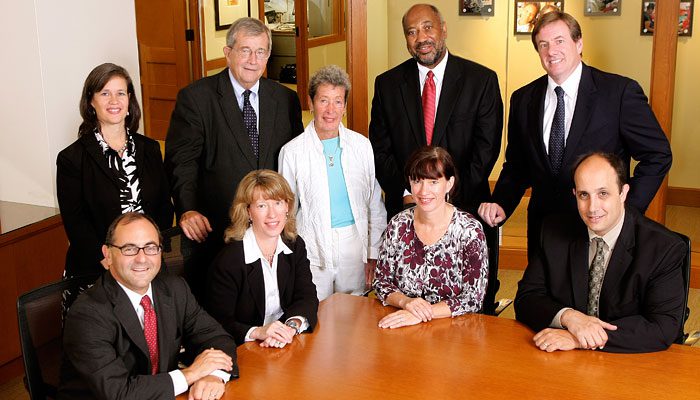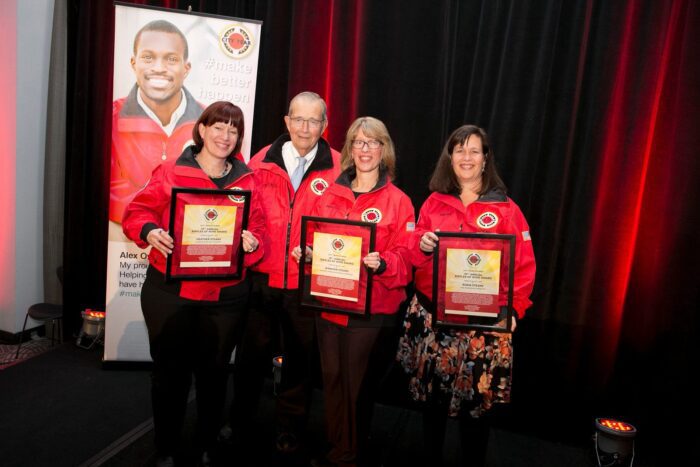Please be aware that the content on this webpage was authored more than 6 months ago, so some information may be outdated or no longer accurate. For more information, please contact our team.
Jennifer W. Steans is the President and CEO of Financial Investments Corporation (“FIC”), where she oversees private equity investments and the Steans family office operations. Prior to founding FIC in 1994, Ms. Steans served as Treasurer of Prime Graphics, Inc. and as a Senior Consultant, and then as a manager, for the Management Consulting arm of Deloitte & Touche, primarily in the finance and health care industries.
Ms. Steans actively helps lead several nonprofit entities, currently serving as Chair of Navy Pier, Life Trustee and past Chair of the Ravinia Festival, and past Chair of the Illinois Venture Capital Association (IVCA). Ms. Steans also serves as a Trustee for The Steans Family Foundation, DePaul University, Rush University Medical Center, World Business Chicago, The Civic Federation, The Commercial Club of Chicago, Phoenix Pact, and the YWCA of Evanston/North Shore.
Ms. Steans holds a B.S. degree in Mathematics from Davidson College and an MBA from the J. L. Kellogg Graduate School of Business at Northwestern University. She was named as one of American Banker’s 25 Most Powerful Women in Finance.
In this blog she provided seasoned insight into how women can become successful in many areas of their career and develop leadership skills.
Q: When did you decide you wanted to become a leader?
A: I’m not sure I actually decided, which is probably true for a lot of people. This is more common for women; I did not have a lot of self-confidence. For a long time, I had a very strong father figure who ended up being really important in my career. It made me a little gun shy to try to follow in his footsteps because he was a very powerful good leader.
I think it was really when I decided to go back to business school at Kellogg [Northwestern University] and I fell into a couple of leadership roles there. Then it occurred to me that I could do this. I started getting my confidence. When I started our family office and got into private equity, for the first couple of years, I was the only woman in the room for almost every meeting. That’s when I knew I wanted to be a leader because it was very clear that something needed to change.
Q: What was your first leadership role?
A: My first real leadership role would have been when I was the co-captain of my high school’s ice hockey team. It is a different kind of leadership of your peers. At Kellogg, I had leadership roles in a school environment. After I graduated Kellogg, I went to Deloitte for four years in consulting and I was quickly promoted to a manager position.
Q: Did you have any mentors who helped mold you and your career?
A: Okay, so that is interesting. I really had no female mentors. At the time, there weren’t many women in private equity. Back then, there were some in consulting at Deloitte. I got to see a few successful women from Deloitte, but at a distance. My real first mentor was the gentleman who ran the Chicago office for Deloitte. He was the one who I worked with most directly.
I thought he was the best manager I’d seen. He had IQ [intelligence quotient] and EQ [emotional quotient]. I was really learning about the need to have both if you’re going to be a good leader. The EQ is almost more important than IQ.
I always tell people ‘You actually need mentors.’ It does not always happen naturally. If you ask people if they are willing to be your mentor, generally they are willing to do it. If you see somebody you think you can learn from, ask. You will often get a positive response. People are happy to help.
Q: What advice would you give women starting off in their career?
A: I think this is for everybody, not just for women. If you want to be a good leader, learn how to lean into conflict. The higher up you get and the more leadership roles you have, the more you’re dealing with problems. All the easy stuff that’s going well doesn’t need to get to your desk. You’re dealing with problems, whether it’s a customer problem or an employee problem.
I think by nature, nobody likes conflict. If you can learn to lean into it and figure out how to learn from conflict, you can even enjoy finding a solution. I think learning how to handle tough situations is key to being a successful leader. The more you put off tough situations, whatever the issues are, the worst it gets. I always tell people, first and foremost, to learn how to lean into conflict.
I also tell people to focus more on going to places where you can learn from people, as opposed to focusing on the title or the company. When you’re looking for that first or second job, focus on who you’re going to be working with. I think there are people you can learn from because early on in your career it is about learning as much as you possibly can.
I think Navy Pier has amazing people to learn from. There are amazing mentors and leaders at the Pier and good coaches. You can go there and just learn a ton from people. So, it’s a great place to think about starting a job or a career.
Q: Jennifer, you talked a little bit earlier about being in a business setting and you were the only woman in that room. Describe that setting. What did you felt like and what did you learn in that situation?
A: At first when you’re the only woman in the room, it’s a little bit isolating. You’re trying to figure out how to fit in. I wanted to be like them. It took me a while to realize that’s the opposite of what you should do. Embrace your strengths and the unique things you bring. That’s going to be a huge value add to the organization.
Q: Statistics show that women are being paid less than men for the same job. How can women advocate for equal pay and higher pay?
A: I didn’t do that well early in my career. When I mentioned my first job was at Deloitte, it was the first job offer I received. I didn’t negotiate anything because I just didn’t think you even did that. I went in and found out I was being paid less than everybody else. When I learned [I was being paid less] I went out and I advocated for myself. I waited until my first-year performance review came out.
Now salary ranges are more publicly known. You can get on LinkedIn or other job sites to see what salary is quoted. I recommend everyone do their homework before taking an offer. I do think women can find people who are willing to coach them as well. When I started, there were very few women in my field. I think now you can find someone. If you can’t find them internally, go to somebody you trust on the outside. For me, I definitely needed a coach. Woman sometimes think ‘well, I’m not quite qualified because I’m missing that one thing.’ Sometimes a coach can give you a little more courage and conviction.
Q: Is there any other advice you’d like to provide to other female leaders?
A: Yes, try to be your authentic self. I can’t say enough about actually finding a place where you can be yourself. I think it’s really important for all of us. Even if you’re not in the job that you think is the perfect job for you, if you can at least authentically bring yourself to the workplace, that makes a big difference.
Early in your career, it’s hard to know what it is you’re really like. I’m helping my 25-year-old son right now. I keep teaching him to think about the things you really like about the job and the things you don’t like because no job is ever perfect. If you start looking at those things [likes and dislikes] it can help you realize what really motivates you and what you’re passionate about.
I found that the hardest thing to do, particularly when growing up, is that you’re always trying to do what’s expected. I grew up in a house where I was trying to do what was expected of me or I had to get a job because I had to prove myself. I encourage women and everyone to get to the point where you’re figuring out what internally motivates you and what makes you tick. Then you’re going to flourish and be a lot more to be happier wherever you work.



